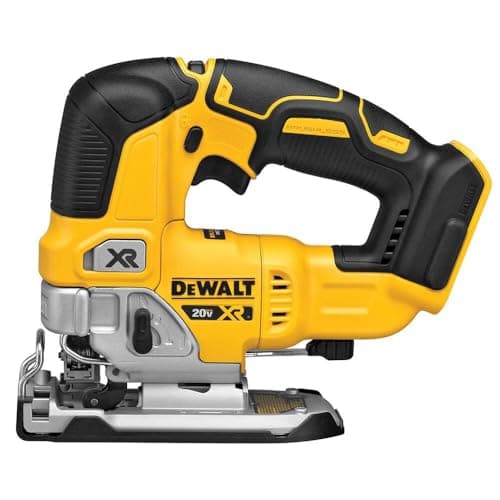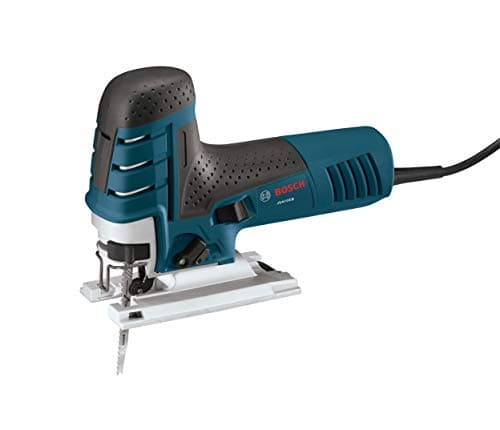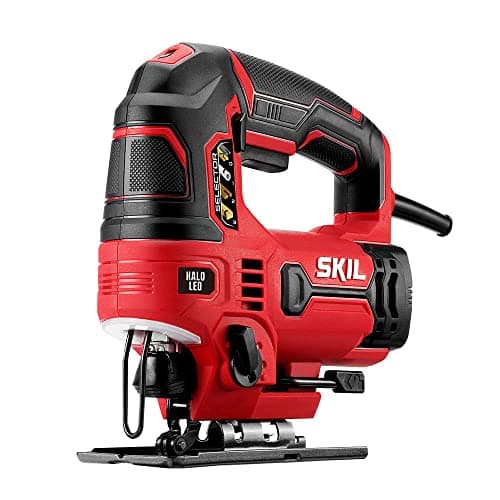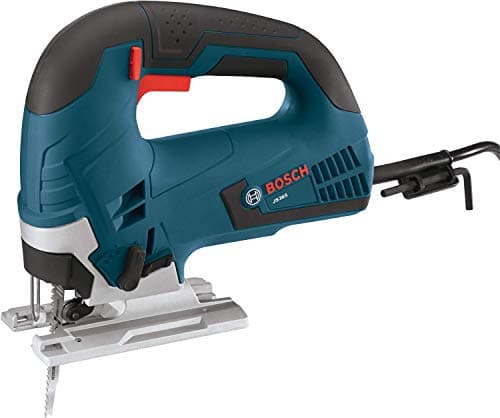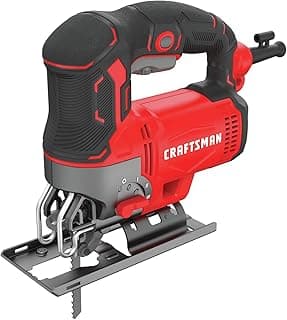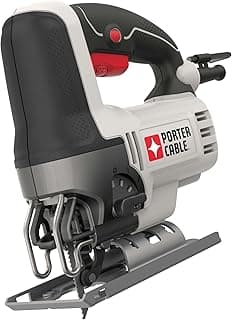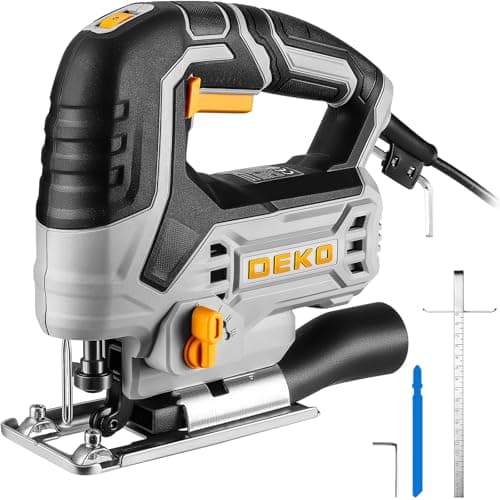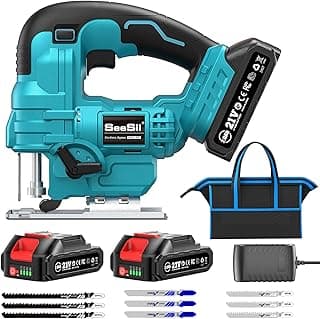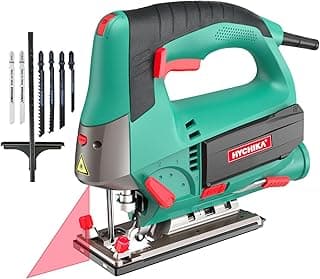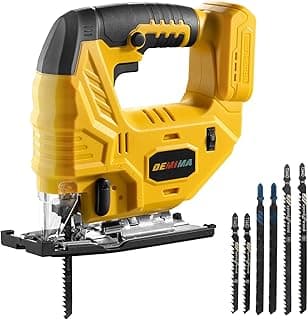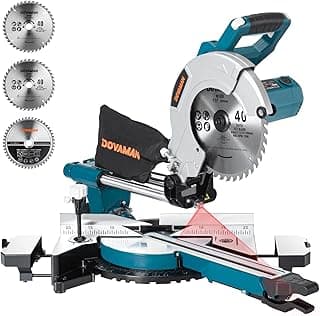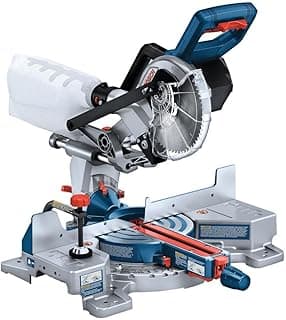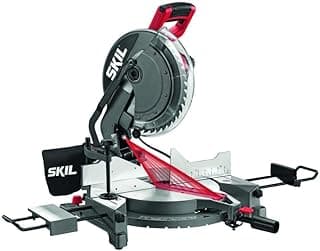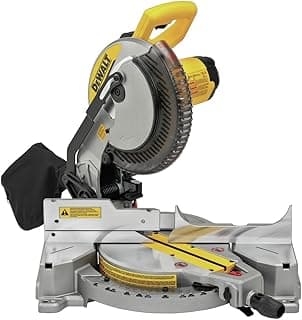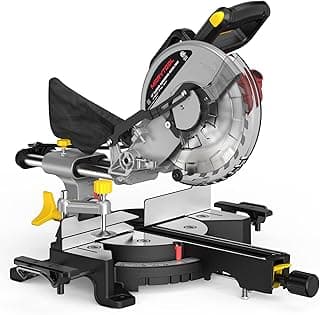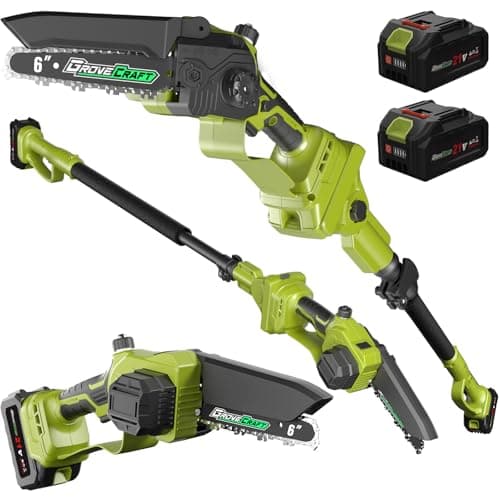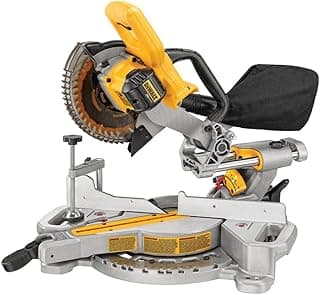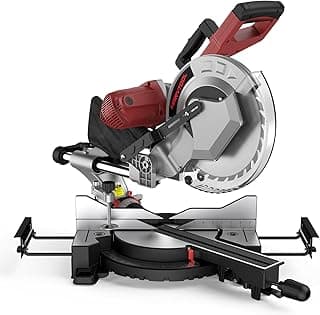When it comes to shaping wood with precision, few tools rival the best jig saws for woodworking. These versatile power tools can handle straight cuts, curves, and detailed patterns with ease. But here’s the thing — not all jigsaws are created equal. Some excel in smooth control and blade stability, while others focus on speed and cutting depth.
If you’re searching for the best jigsaw tool for your next project or comparing models to find the best jig saw that matches your needs, you’re in the right place. Stick around — because in just a few minutes, you’ll know exactly which jigsaw deserves a spot in your workshop.
Top Picks
Best Precision Control: DEWALT 20V MAX XR Jig Saw, 3,200 Blade Speed, Cordles
The DEWALT DCS334B jigsaw combines power and precision in a compact, easy-to-handle design. Its brushless motor delivers consistent cutting performance across metal and other tough materials while maintaining excellent energy efficiency. The four-position orbital action gives users flexibility to adjust cutting aggressiveness, making it ideal for both smooth and fast cuts. Despite its solid construction, the tool remains lightweight at just over 4 pounds, enhancing maneuverability and reducing fatigue during extended use. The 45-degree bevel capacity adds versatility for angled cuts, and DEWALT’s ergonomic grip provides good balance and control.
From a user’s perspective, this jigsaw stands out for its smooth operation, reduced vibration, and accurate cut tracking. Customers often appreciate its brushless efficiency and compact design but note the absence of a battery as a drawback, especially for those new to the DEWALT 20V platform. Overall, it’s a reliable and precise cutting tool suited for professionals and DIY enthusiasts who value performance and control.
Best Ergonomic Design: BOSCH JS470EB Corded Barrel-Grip Jig Saw - 120V Low Vibration
The BOSCH JS470EB jigsaw delivers the strength and precision expected from a professional-grade cutting tool. Its 7.0-amp motor offers up to 3,100 strokes per minute, ensuring clean and consistent cuts on various materials. The large die-cast aluminum footplate enhances stability and accuracy, while the ergonomic body and soft grip zones make prolonged use more comfortable. Its solid construction minimizes vibration, giving users better control and precision when handling intricate cuts or demanding applications.
From a user standpoint, this jigsaw earns praise for its smooth performance, robust build, and dependable accuracy. Many appreciate the balance between power and comfort, noting that it feels steady even during long sessions. However, at nearly 10 pounds, some find it heavier than other models in its class, which may affect portability. Overall, the BOSCH JS470EB stands out as a reliable corded jigsaw ideal for professionals who prioritize precision, durability, and comfort in one machine.
Best Value Performance: SKIL 6 Amp Corded Jig Saw- JS314901
The SKIL JS314901 corded jigsaw delivers dependable performance for everyday cutting tasks. Its 6-amp motor provides ample power for cutting through wood and light metal with precision. The inclusion of both wood and metal blades makes it versatile right out of the box, ideal for DIY projects or light professional use. The tool’s lightweight 4.9-pound build enhances control and reduces fatigue, while the brushless motor ensures efficient operation and long-term durability.
From the user perspective, this jigsaw is often praised for its smooth speed transitions, clean cutting action, and comfortable handling. Its simplicity and reliability make it a go-to choice for homeowners and hobbyists who need solid performance without the complexity or price of premium models. While it lacks some advanced features found in higher-end jigsaws, the SKIL JS314901 stands out as a budget-friendly yet capable tool that delivers consistent results for general woodworking and small-scale metal cutting.
FAQs
Can I Cut a 2x4 with a Jig Saw?
Yes, you can cut a 2x4 with a jigsaw, but it requires the right setup and blade. A powerful jigsaw with a motor of at least 6 amps can handle this thickness if paired with a long, coarse-tooth blade designed for wood. However, because a jigsaw’s blade is thin and flexible, it may struggle with perfectly straight or fast cuts through dense material.
For best results, use a sharp, high-quality blade with at least 6–10 teeth per inch (TPI). Secure the 2x4 firmly, move the saw slowly, and let the blade do the work. Avoid forcing the tool, as that can bend the blade or cause uneven edges. For frequent or heavy-duty cuts through 2x4s, a circular saw or reciprocating saw is generally more efficient.
What's Better Than a Jig Saw?
It depends on the type of cut you need. A jigsaw is ideal for curved, detailed, or plunge cuts, but for long straight cuts or thick materials, other tools might be better.
-
Circular saws offer more power and precision for straight cuts through large boards or plywood.
-
Band saws excel at cutting curves in thicker materials with smoother results and less vibration.
-
Scroll saws provide finer, more detailed cuts for intricate woodworking projects.
In short, while a jigsaw is highly versatile, circular and band saws outperform it in specific cutting tasks that require stability and power.
What Is the Best Jigsaw Blade to Cut Wood?
The best jigsaw blade for cutting wood depends on the finish and material thickness. For general woodworking:
-
High Carbon Steel (HCS) blades are ideal for softwoods and plywood.
-
Bi-metal (BIM) blades combine flexibility and durability, suitable for both soft and hardwoods.
-
For smooth, fine cuts, choose a blade with 10–12 TPI.
-
For faster, rough cuts, go with a coarse 6 TPI blade.
Always ensure the blade length exceeds the thickness of the wood, and check the shank type (T-shank or U-shank) for compatibility with your jigsaw model.
Which Saw Is Best for Cutting Wood?
The best saw for cutting wood depends on your project type:
-
For straight cuts, a circular saw is unmatched in speed and accuracy.
-
For curved or decorative cuts, a jigsaw offers the best control.
-
For detailed or precision work, a scroll saw is ideal.
-
For resawing thick boards, a band saw performs best.
Each saw serves a unique role. If you prioritize versatility and portability, a jigsaw remains the most flexible all-around tool for woodworking.
Final Thoughts
Choosing among the best jig saws for woodworking ultimately depends on how you plan to use it. For general-purpose woodworking, a jigsaw offers a balance of power, precision, and maneuverability that few tools can match. Whether you’re crafting furniture, trimming panels, or creating intricate shapes, the right jigsaw can elevate both your accuracy and creativity. Invest in a reliable model — and your workshop will thank you.

